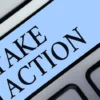
A while back, my brother and I bought a rental property in LaSalle.
A single-family home, purchased in 2018. We did some light cosmetic and mechanical work and had a tenant in place within a month. The tenant stayed until the end of last month — great family. The house itself? That’s another story.
Let’s just say I’m surprised the previous tenants never fell through the floor into the crawl space.
In the moment, I asked myself: “Is this really worth it? Do I really need these problems in my life?”
Then I did the math: rent collected, mortgage paid down, appreciation, future development potential. And it hit me — yes, it absolutely was (and is) worth it.
Here’s the funny part: the house is deteriorating. Structurally, it’s worse today than it was when we bought it. Yet somehow, it’s worth significantly more than it was in 2017.
If I’m a betting man, even if we only do minor maintenance from here, it’ll likely be worth more five years from now.
Why?
Because it’s less about the house itself, and more about the money required to buy it.
Those dollars — the ones people use to measure value — are quietly losing purchasing power.
It takes more of them to buy the same house, not because the house improved, but because the dollars are worth less.
That’s what inflation — or more accurately, currency devaluation — looks like in real life.
What Just Changed in Ottawa
On November 4, the federal government released its budget — and it’s a big one.
A few key highlights:
- $280 billion in planned “investments” over five years: infrastructure, competitiveness, housing, and more.
- A $78 billion deficit for 2025-26 — one of the largest in recent memory.
- A shift toward “capital budgeting,” separating day-to-day expenses from long-term spending.
That’s a lot of new money entering the system.
And history tells us where that money usually ends up: in assets.
Real estate, equities, commodities, Bitcoin — anything with real or productive value.
The “New Game” of Assets
Owning that rental reminded me that “problems” are often just the price of opportunity.
But what matters most today is what kind of assets you hold.
To me, good assets aren’t limited to real estate. Everyone has to define quality for themselves.
For me, it’s assets that benefit from dollar devaluation — the ones that hold or grow in value as money loses purchasing power.
That might be a property. It could be a solid business or even equities in productive companies. For some, it could also be Bitcoin.
And even better if that asset produces cash flow — income that helps pay for itself while it grows in value.
That’s how you stay ahead in a world where deficits and money printing have become standard policy.
The Takeaway
This budget is another reminder that the game keeps changing.
Massive spending might sound like progress, but it also means the value of your dollars continues to erode quietly in the background.
The real question isn’t “What will the government do next?”
It’s “How will you position yourself to stay ahead of it?”
If you’d like to talk about how to build and structure your mortgage or investment strategy for this reality, let’s connect.
Talk soon,
— Vince
P.S. The government can call it “investment,” but what it really signals is acceleration — more money chasing the same assets. The ones who win are those holding things that benefit from it.








